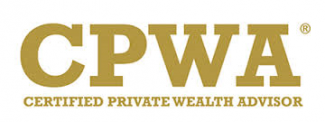
Physicians: Asset Protection
by Mario Yngerto on Oct 23, 2017
MIAMI/CORAL GABLES, FL – Physicians have long been the target of attorneys seeking an easy payday for their clients. As litigation and settlements increased in the earlier part of the 2000s, so too did malpractice insurance premiums, which can range from $20,000 to $200,000 annually. One study notes that 10 cents of every patient dollar goes towards malpractice insurance payments. There are approximately 85,000 malpractice lawsuits on average each year in the U.S. and the general trend has been a year-over-year rise in suits filed.
With the average out-of-court settlement at $425,000, and the average jury award at more than $1 million, (though more than 90% of cases are settled out of court), it’s easy to see why insurance providers have hiked premiums. It is important to note that the vast majority of suits are settled within insurance limits.
All this, however, has led many practitioners to lower their coverage levels, increase deductibles or even drop certain kinds of coverage all together where the law will allow. While this may help increase cashflow, it also creates an extreme risk of exposed assets. In the advent of a lawsuit, with a plaintiff seeing dollar signs, it can be these assets that now become attached to a judgment. At the same time, malpractice is only one type of potential legal claim that can be pressed against a physician—anything from breach of contract to an employment disagreement to personal injury or sexual harassment may prove an issue in today’s litigious society.
In this piece, we’ll discuss what physicians can do to help protect what is theirs.
Family Limited Partnerships
One of the most common methods for sole practitioners to protect their assets is to place these assets (including business assets) into a family limited partnership or FLP. An FLP may cost $10,000 or more to set up, but it can be an effective deterrent against a would-be plaintiff—often times driving them towards settlement or insurance-limited payouts rather than full-fledged suits.
Why is an FLP so effective? What an FLP does is gradually reduce your estate by allowing you to transfer assets to your heirs over time. You may be a small percentage “general partners” whereas your family may serve as limited partners. You (and your spouse) retain control of the assets and there are also some tax and estate planning benefits to this structure.
The main issue for a potential litigant-creditor is that if they obtain a “charging order” from the court, they are only entitled to the “income” generated by the FLP that is paid to you and not the underlying assets. However, once the order is enforced, the litigant-creditor is now on the hook for any taxable income generated by the Partnership. Additionally, if a charging order is obtained, the assets can only be touched once the income earned is distributed, which you, as the general partner, are under no obligation to do. As such, it could be years before any income becomes reachable. Add to that the potential tax headache, and it often forces your creditor-litigant to settle for a much smaller amount.
Limited Liability Companies or LLCs have similar but slightly less robust protections than FLPs. With both structures, there are certain restrictions and rules that help ensure the protections uphold in any lawsuit. The rule of thumb here being that you treat either an LLC or FLP as a true business entity and do not “pierce the corporate veil” by co-mingling personal and business assets and expenses.
There are other corporate structures to consider (e.g. C-Corp, S-Corp, LLP, LP or PC) that may provide certain protections and advantages depending on the state and type of business or assets being protected.
Irrevocable Trusts
Medical professionals have long used irrevocable trusts and life insurance trusts as a simple and cost-effective asset protection method. Not only do irrevocable trusts potentially protect assets, but they help a practitioner’s heirs avoid probate. Giving up control of the assets makes them “judgment-proof” unlike revocable trusts, which offer little assets protection.
Domestic Asset Protection Trusts or DAPTs have also come into vogue recently, but are still wending their way through their first true court tests. DAPTs allow a physician to name themselves as the beneficiary of a trust while still providing similar protections as traditional irrevocable trusts.
Finally, some wealthier physicians with a high-level of liquid assets may want to look at offshore trusts as an option. Certain jurisdictions don’t recognize or honor U.S. judgments, and, as such, the assets are protected from domestic creditors. Still, they do cost $20,000 or more to set up, so it is best to only do this if there is true wealth to protect.
Other Options
Many physicians believe that putting their assets (e.g. a home) into their spouse’s name makes those assets out of the reach of creditors. This is true in certain states, but in others it offers no protection—especially those with community property laws. This spousal protection also leaves the physician-partner vulnerable in the advent of a divorce.
There are several nuances here that can work for or against a physician following a judgment, but it is important to note that most all of these protections we’ve discussed can be clawed back within a certain time period. For example if you transferred assets to a spouse with a judgment looming it does not matter if you technically transferred prior to the judgment being rendered against you. A judge, especially in the case of bankruptcy, may disallow the transfer of the assets as fraud, once again making them vulnerable.
In Conclusion
There is no magic wand to projecting all of your assets, and there is great variation from state to state. In some states for example, your primary home is fully protected from creditors whereas in others it may be protected only up to certain low limits. Retirement, ESOP and college savings plans are also generally protected from creditors, but again there is nuance between states.
The bottom line is that taking prudent steps to protect your assets should be considered a business necessity—a necessity that should be undertaken not in the shadow of a potential burdensome suit, but when times are good and litigation skies are clear.
Many of the methods discussed here, however, are effective deterrents to ensure your creditor settles within your insurance limits. At Genesis Wealth Managements, Inc. we have extensive experience working directly with physicians to quarterback their financial and estate planning needs. While we do not give legal or tax advice, please contact us for more information at: http://www.genesiswealthmanagement.com/
Please Contact Me Directly At:
- Mario Yngerto
- (786) 393-6960
- myngerto@genesiswealth.org
Genesis Wealth Management, Inc. is a fee-only firm led by Mario Yngerto serving the Greater Miami, Coral Gables, Ft. Lauderdale and West Palm Beach area. Mario is a NAPFA Advisor and holds the CPWA®, CFP®, and ChFC designations. We provide Financial Planning and Investment Planning services to our clients utilizing the proven academic research behind Dimensional Fund Advisors. We adhere to the fiduciary standard of acting in the “best interest” of our clients and are only compensated by the fees paid for our investment advice—keeping us free of conflicts and accountable to our clients.




